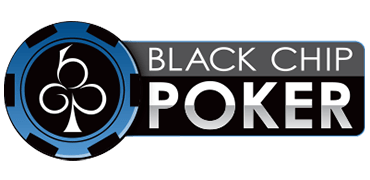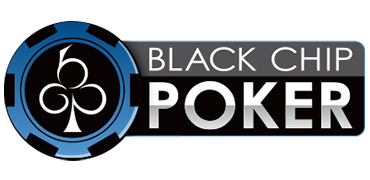You’re about to learn about the fold in poker, also known as “mucking” or a “laydown”.
During live poker, you might hear someone say, “Fold and save money.” This can be useful in many situations, but poker isn’t won by folding. Let's see what the term means, why this action is optimal in some cases, and when to fold in poker. We’ll also recommend a strategy or two for some of your starting hands.
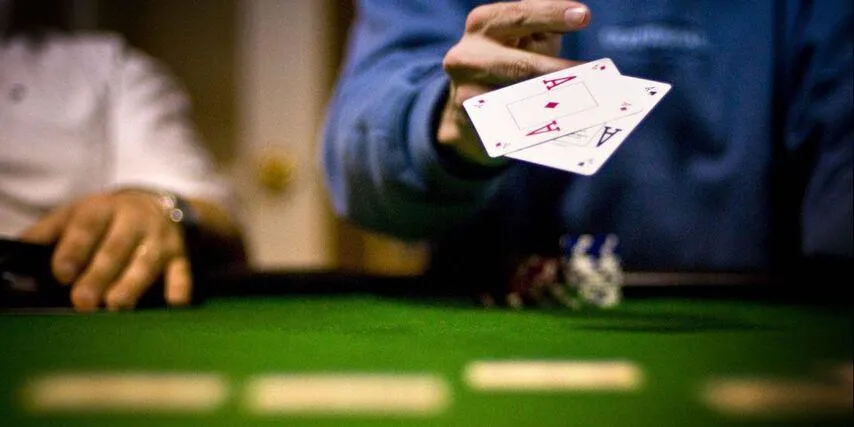
Fold: What Does This Poker Term Mean?
What does fold mean in poker?
Fold is the poker action when a player folds his cards. When a player does this, they have no chance of winning the pot and must wait for the next hand to start.
This raises a logical question: why does this “save money”? When a poker player folds, it’s because they believe that there’s a much greater chance of losing chips than of winning them.
It’s a simple and sound concept because of two unspoken rules in poker:
- With good hands, you need to win the maximum.
- With medium and borderline hands, you need to lose the minimum.
Of course, you’ll end up in plenty of situations where you’ve got to put the chips in – despite feeling like folding. As you play more online, you’ll get more familiar with which hands are automatic folds and which you should ponder continuing with.
- Increased first deposit bonus
- Increased rakeback and reloads
- Help with deposits and cashouts
- Access to private freerolls
- Round-the-clock support
Quick Review of All Poker Actions
Hollywood makes it seem like poker players only use two actions: fold or all-in. Of course, that’s far from true. This game has several ways to play, allowing you to set cunning traps or extract value from raising the price to see cards.
These are the actions you can choose in Texas Holdem:
- Pass: You already know about this option. You fold your cards and you won’t lose anything else in the hand.
- Check: An action in which the turn is passed to the next player. This technique is used, for example, to view the next card for free.
- Call: Matching the previous bet.
- Raise: Instead of matching, a raise increases the bet size and puts the action back on the other players.
- All-in: Bet all of your chips, like Nick Petrangelo in this shot from the 2023 One Drop.
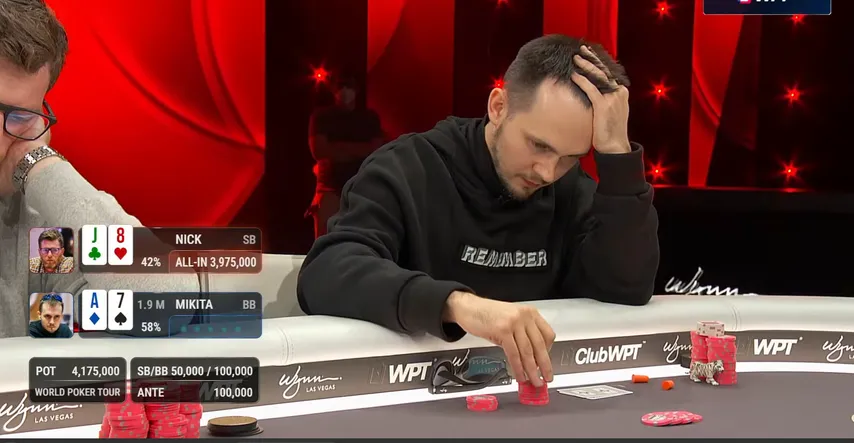
When Should You Fold Your Hand in Poker?
How do you know when it's time to fold your cards? There is universal consensus about when to fold which hand, except preflop when you get dealt AA – the best starting hand in poker.
These factors can influence a fold:
- The power of your combination: It's simple: the stronger your hand, the less likely it is that you will have to fold.
- How close you are to “the money” in a tournament: On the bubble, avoid playing for all the chips with marginal hands. The safer strategy is to calmly choose a fold and get in the money, ensuring yourself a prize, than to get nothing.
- Position at the table: You should strive to play more hands in position against your opponents. If you’re out of position postflop, avoid repeatedly paying chips with mid-tier hands.
The Preflop Round
Preflop is the first round, or “street”, in poker.
Preflop decisions affect everything that comes postflop as the game gets more complex. For this reason, be selective. Beginners should not play marginally strong hands, as they will not have the experience to play them optimally postflop. You should get familiar with using a poker range chart or table, so you know which hands to muck and which to play.
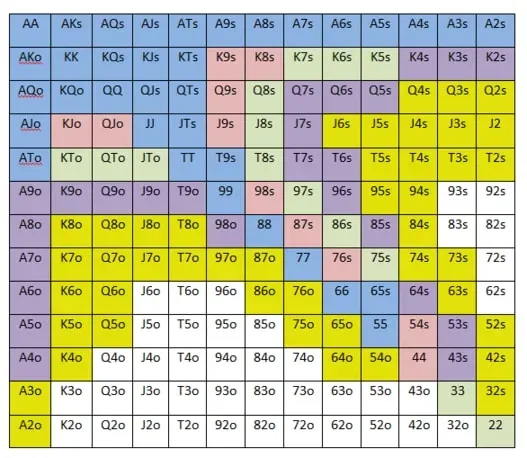
Postflop Rounds (Flop, Turn, and River)
Postflop, your decision is more complicated and you have more to think about:
- Your cards: Imagine that you have A♠A♣ and the flop comes with three low diamonds. A careful opponent responds to your bet with a large raise. With a single pair and little chance of improving, it is often worth considering a fold here.
- Actions of opponents: The aggressive actions of an opponent do not always indicate the strength of his combination, but everyone manages to collect the nuts occasionally – even aggressive maniacs who play every hand.
- Table position: Sometimes playing out of position (i.e. making first decisions on all streets) will be too dangerous, meaning the best solution is to simply fold if the flop doesn't suit you well.
- Your dynamics with specific opponents: After playing a few hands with a particular opponent, you will already have a rough idea of whether he is inclined to bluff aggressively or play very carefully.
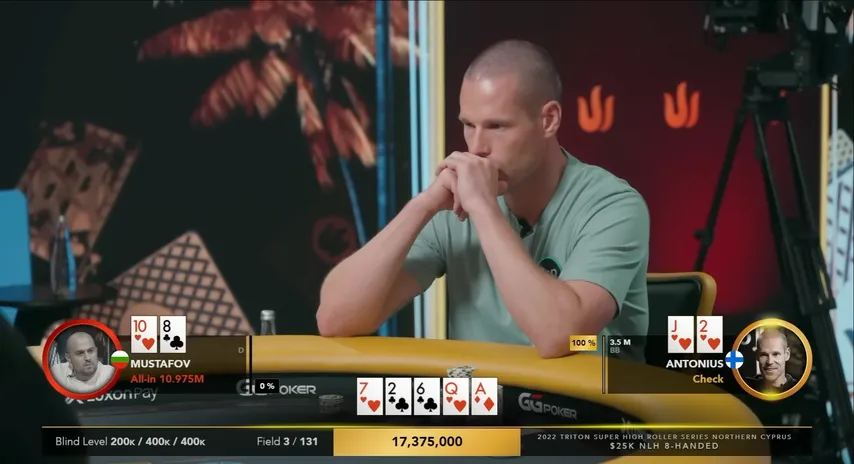
How to Use Poker Range Charts to Fold Effectively
Range charts are widely-used and effective, but there are no universal solutions for all occasions. Some charts will seem too tight, others too aggressive. Ideally, at some point you will need to develop your own charts or get them from a professional trainer.
It’s best to form your ranges from well-known models, then refine them as you see fit. Our shop has many programs to experiment and drill ranges (like the popular Flopzilla). Those ranges can be a guideline that you tailor to the tables you play. For example, making adjustments for tighter or weaker opponents.
Enter Freerolls with Hundreds in Prize Dollars
A good way to gain a lot of practical knowledge is to participate in free tournaments. We keep a full schedule of the events running today.
Many players forget about the first-depositor freerolls when they sign up with a poker room, meaning their shot at hundreds or even a thousand dollar guarantee could expire. 888poker has $1,000 First Depositor Freerolls and other sites we’ve reviewed have similar guarantees.























